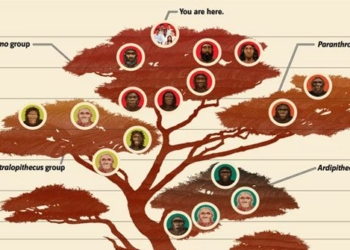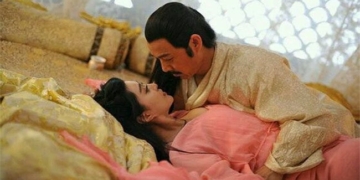One of the ways to showcase one’s power and status is by how many attendants follow behind and how palace maids and eunuchs assist them in daily activities.
In many historical dramas set in the Qing Dynasty of China, you are likely familiar with scenes where concubines are escorted by palace maids and eunuchs. However, have you noticed that this special treatment is only granted to women after they have received the emperor’s favor and officially hold a high rank in the imperial harem? Before receiving such favor or facing disfavor, they walk without the support of others.
Why is this the case? The reason goes beyond simply being elevated in rank.
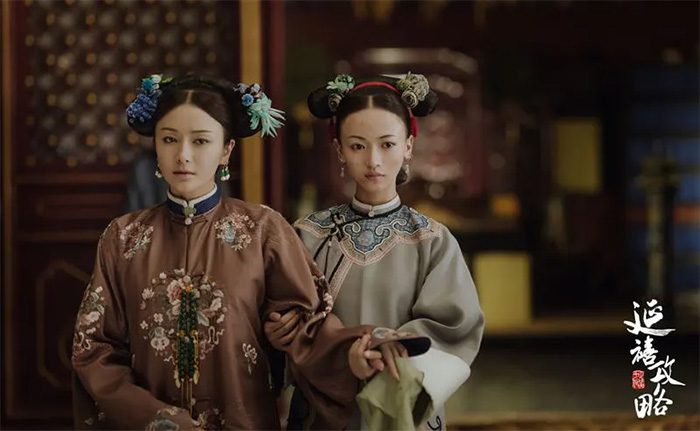
Concubines are escorted by palace maids and eunuchs.
According to historical records, during the Qing Dynasty, there was a significant class distinction between the Han and Manchu people. The Manchu people regarded themselves as the highest nobility, far superior to the Han. This was also true for concubines in the imperial harem.
Many emperors took concubines not just out of affection but also due to political considerations, involving relationships among officials and factions within the court. As a result, most women in the harem held relatively high status and were of Manchu descent.
Manchu and Han women are different. The Manchu people are known for their equestrian skills and proficiency in archery, characterized by their strength and robustness, which applies to both men and women. This contrasts sharply with the delicate image of concubines being assisted by palace maids as portrayed in films. Given the health conditions of Manchu women, they essentially do not need assistance in their daily movements.
However, the portrayal in films is not entirely fictional. From a historical perspective, this phenomenon can be explained by three main reasons:
First, Manchu women feigned fragility to cater to the emperor’s preferences.
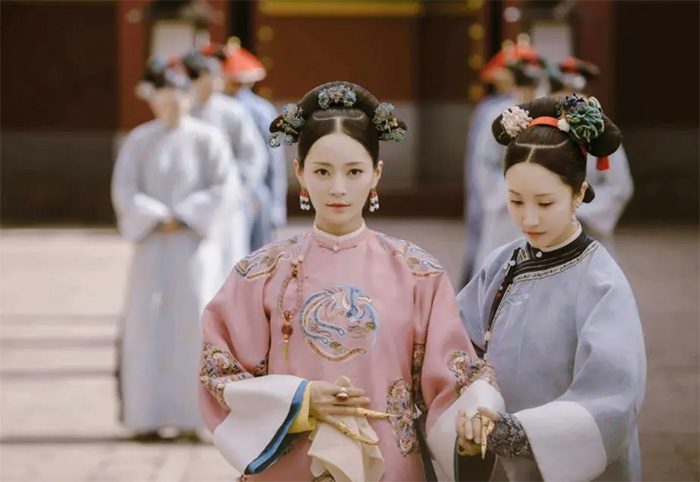
Chinese men of that era, regardless of ethnicity, favored gentle and demure women. Hence the saying: “A delicate woman is a gentleman’s ideal.” Particularly after the Manchu people’s conquest of the central plains, they found the slender and delicate appearance of Han women especially appealing, leading to decrees for Manchu women to adopt such behaviors, shedding their “rugged” habits from the harsh steppes. Women in the harem complied with this directive primarily to win the emperor’s favor, thus easily attaining affection and rising in status.
At the time, emperors preferred the new over the old; if one did not adapt to the changing circumstances, they would remain trapped in the imperial confines with a lowly status.
Second, the health of women in the harem gradually weakened over time.

It is undeniable that Manchu women were strong, but this was true only before and for a time after the Manchu conquest of the central plains. In the later reigns of Qing emperors, as the Manchu people had lived in the central plains for too long, women no longer engaged in horseback riding and archery as before. They spent their days focusing on personal grooming and seeking the emperor’s favor, with the sole duty of bearing children for the emperor. Thus, their inherent strength began to diminish over generations.
After receiving favor and becoming pregnant, concubines became even weaker. This explains why women in the harem often did not live long and why healthy infants were rare. Therefore, it is understandable that they required assistance from palace maids in their daily activities.
Third, being escorted by attendants symbolizes status and rank.
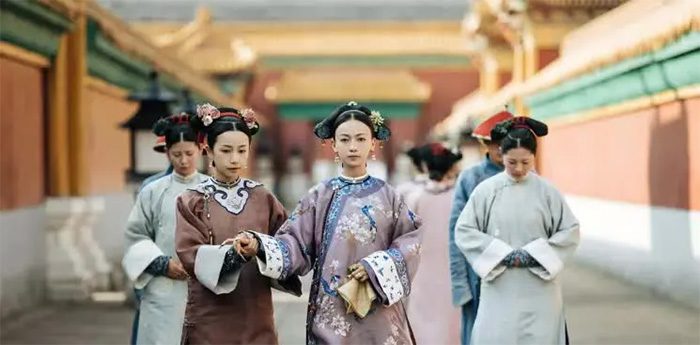
After receiving the emperor’s favor, a woman officially holds a high status in the harem. Consequently, she receives numerous privileges, including additional attendants, better meals, allowances, and power. This allows her to proudly demonstrate that she has been favored by the emperor. Among the thousands of beauties in the harem, many were fortunate enough to share the emperor’s bed, while many others might never even see the revered figure, let alone receive his favor.
One way to showcase power and status is by the number of attendants following behind and the assistance of palace maids and eunuchs in daily activities.
Fourth, the bound footwear.
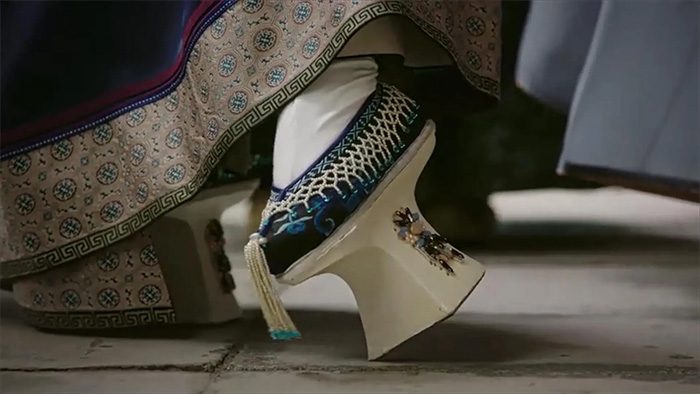
The bound footwear of Qing concubines.
Qing concubines often wore bound footwear—a type of shoe characteristic of the Manchu nobility. With a design that made walking difficult, these shoes made it hard for concubines to move about, often leading to falls. Even those accustomed to wearing them struggled to maintain balance during vigorous activity.
At one point, the higher the status of the concubine, the taller the bound footwear became, accompanied by more intricate designs and precious embellishments. Thus, having attendants to support them while walking was essential.









































